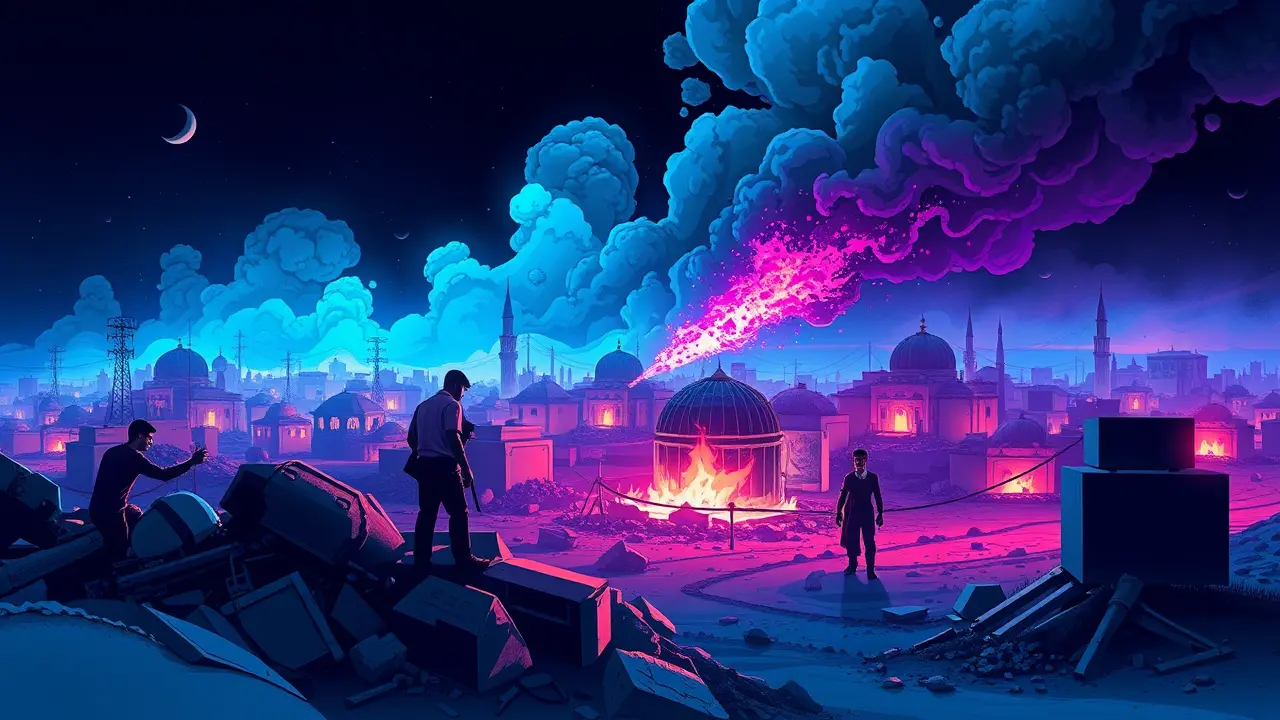Lessons Since October 7th For Israelis And Palestinians.
The fragile ceasefire holding in Gaza, a temporary respite from the relentless artillery fire and aerial bombardments that have characterized this latest, brutal chapter in the long-standing Israeli-Palestinian conflict, belies a profoundly grim reality: the prospects for a durable, long-term peace appear more distant and more structurally compromised than at any point in recent memory. The attacks of October 7th did not occur in a vacuum; they were a violent eruption from a pressure cooker of historical grievance, failed diplomacy, and a political status quo that had grown intolerable for all sides, yet seemingly immutable.For Israel, the trauma of that day has shattered the foundational assumption of its security doctrine—the concept of deterrence through technological superiority and intelligence omnipotence. The meticulously constructed barrier walls and the Iron Dome, once symbols of defensive invincibility, were revealed to be tragically permeable, leading to a national psyche scarred by a vulnerability not felt since the 1973 Yom Kippur War.This has, in turn, catalyzed a political and military response of unprecedented scale and ferocity in Gaza, a campaign that, while aimed at dismantling Hamas's military infrastructure, has also resulted in a staggering humanitarian catastrophe, leveling entire neighborhoods and claiming tens of thousands of Palestinian lives, thereby creating a new generation steeped in loss and animosity. The Israeli public, once deeply divided by the judicial overhaul protests, has largely coalesced around a government pursuing maximalist war aims, but this unity is brittle and may fracture over the agonizing questions that will inevitably follow: questions of intelligence failure, the strategic wisdom of the Gaza operation's execution, and the profound moral costs incurred.For the Palestinians, particularly those in Gaza, the lessons are equally stark and devastating. The governance of Hamas, which promised resistance and dignity, has brought upon them a level of destruction that is generational in its scope, crippling their already fragile infrastructure, economy, and social fabric.The Palestinian Authority in the West Bank, weakened and discredited, watches from the sidelines, its legitimacy further eroded, leaving a terrifying political vacuum. The international community, meanwhile, finds itself trapped in a familiar cycle of hand-wringing and diplomatic paralysis.Calls for ceasefires and humanitarian pauses from the United Nations and various capitals are routinely ignored or paid lip service, while the United States, the traditional arbiter, struggles to balance its unwavering support for Israel's right to self-defense with growing global alarm over the humanitarian toll and the strategic folly of a campaign with no clear, achievable political endgame. The two-state solution, already on life support for years, now lies in ruins, its basic premises—mutual recognition, negotiated borders, shared sovereignty over Jerusalem—obliterated by the current climate of maximalist distrust and visceral hatred.The landscape that will emerge when the guns finally fall silent for more than a few days is one of deepened radicalization on both sides. In Israel, a hardened public sentiment will likely empower those who advocate for permanent security control over Gaza and the West Bank, foreclosing any possibility of a viable Palestinian state.Among Palestinians, the sheer scale of the devastation will likely extinguish any remaining faith in a negotiated peace, cementing the appeal of armed resistance as the only perceived path to liberation. The ghosts of this conflict will linger, not as abstract memories, but as the very rubble of Gaza and the fresh graves on both sides of the separation barrier. As in the aftermath of other great historical convulsions, from the Peloponnesian War to the conflicts that birthed the modern Middle East, the true lesson of October 7th and its bloody aftermath may be that some victories are so pyrrhic, so destructive to the very fabric of society, that they plant the seeds for the next, inevitable conflagration, leaving a bitter legacy for generations to come.
It’s quiet here...Start the conversation by leaving the first comment.
